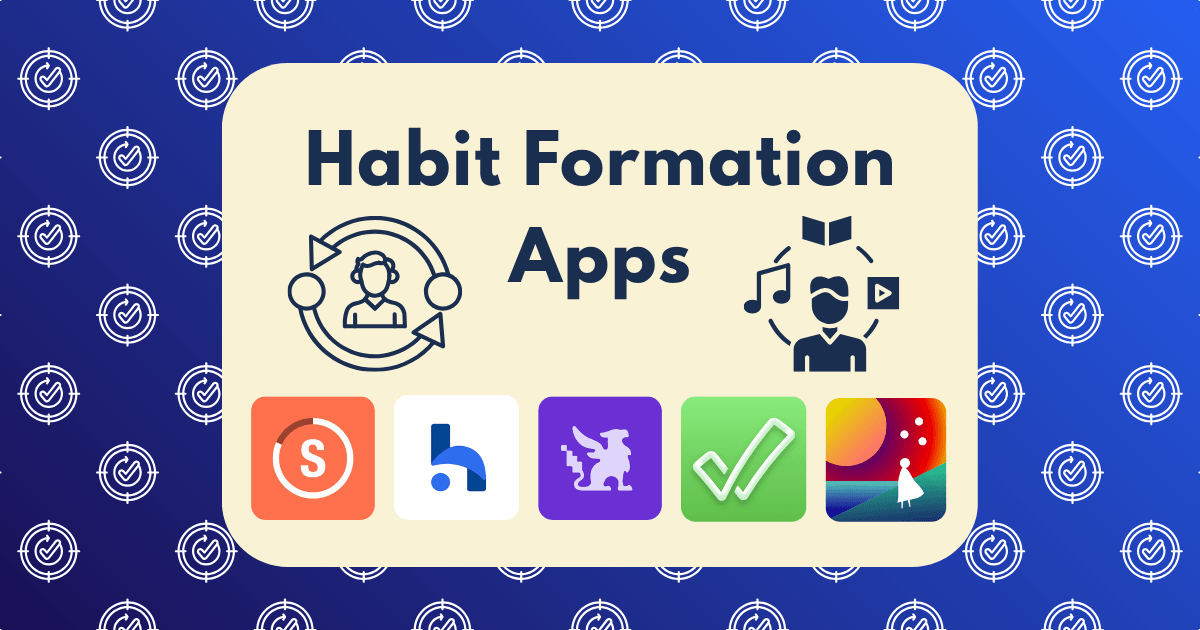💰 Make Money Online
🤖 AI & Future Opportunities
✍️ Content & Audience Growth
📈 Marketing & Sales
🛠 Products & Services
🧠 Foundations & Mindset
🏆 Real-World Proof

We’ve all been there—downloading the latest habit tracker app with enthusiasm, only to abandon it two weeks later. As someone obsessed with optimizing performance and building wealth-generating routines, I decided to put the most popular habit formation apps to the test. Not just for a week or two, but for a full three months to determine which actually delivers on its promise of creating lasting behavior change.
Before diving into the apps themselves, it’s worth understanding what makes habit formation so challenging. According to research from University College London, forming a new habit takes anywhere from 18 to 254 days—not the 21 days of popular myth. This variance explains why one-size-fits-all approaches often fail.
The most effective habit formation follows what behavioral scientist BJ Fogg calls the “Tiny Habits Method”: behavior happens when motivation, ability, and a prompt converge at the same moment. Most apps focus heavily on prompts (notifications) while neglecting the crucial elements of motivation and ability.
For this experiment, I selected five leading habit formation apps based on download numbers and user ratings. I committed to building three specific habits using each app:
I evaluated each app based on:
Let’s see how they performed.
Price: $5.99 one-time purchase
Streaks takes a visually satisfying approach to habit tracking with its emphasis on—you guessed it—maintaining unbroken streaks of behavior.
What Worked:
What Didn’t:
Behavior Change Score: 7/10
Streaks excelled in the first month but faltered in creating lasting change because it relied too heavily on extrinsic motivation. When I broke a streak, my motivation plummeted. According to Self-Determination Theory, sustainable behavior change requires intrinsic motivation, which Streaks doesn’t effectively nurture.
Price: Free for basic features; $4.99/month for premium
Habitify positions itself as the more analytical habit tracker, offering detailed statistics and insights.
What Worked:
What Didn’t:
Behavior Change Score: 8/10
Habitify shined in the mid-term phase when data patterns became meaningful. The insights helped me adjust my approach to habit formation, particularly with my reading habit. Research from the American Psychological Association confirms that self-monitoring significantly increases success rates in behavior change programs.
Price: Free for core features; $4.99/month for supporter subscription
Habitica turns habit formation into a role-playing game complete with avatars, quests, and rewards.
What Worked:
What Didn’t:
Behavior Change Score: 6.5/10
Habitica created strong initial engagement but suffered in long-term adherence. The novelty of gamification wore off around day 45, and I found myself completing tasks for the game rewards rather than internalizing the habits themselves. According to research on intrinsic motivation, this external reward focus can actually undermine long-term habit formation.
Price: Free for three habits; $4.99 for unlimited
Way of Life takes a journaling approach to habit tracking with its distinctive color-coded system.
What Worked:
What Didn’t:
Behavior Change Score: 7.5/10
Way of Life excelled in creating self-awareness through its journaling approach. By regularly reflecting on why I missed certain habits, I developed better strategies for implementation. This aligns with research on implementation intentions from psychologist Peter Gollwitzer, showing that planning for obstacles significantly improves habit adherence.
Price: $9.99/month or $59.99/year
Fabulous differs from traditional habit trackers by offering guided “journeys” that build habits progressively.
What Worked:
What Didn’t:
Behavior Change Score: 9/10
Fabulous demonstrated the most sophisticated understanding of behavior change principles. By starting with tiny habits and gradually building complexity, it created sustainable change that persisted beyond the testing period. Its approach aligns perfectly with Stanford researcher BJ Fogg’s Behavior Model, which emphasizes starting with tiny behaviors that require minimal motivation.
After three months of testing, Fabulous emerged as the clear winner for creating lasting behavior change. Despite its higher price point, its science-based approach to habit formation produced the most sustainable results.
However, the best app ultimately depends on your specific needs:
What became clear through this experiment is that no app can replace the fundamental requirements for lasting behavior change: clear purpose and environmental design.
The habits that stuck weren’t just tracked in an app—they were connected to my deeper values and supported by environmental cues. For example, my meditation practice became sustainable when I:
This three-pronged approach aligns with research from habit expert James Clear, who emphasizes that environment often matters more than motivation in behavior change.
As someone focused on wealth building, I couldn’t ignore the financial aspect of this experiment. Considering the lifetime value of these habits:
Even the most expensive app (Fabulous at $59.99/year) delivers extraordinary ROI when viewed through this lens.
The habit formation app market continues to evolve, with newer entrants incorporating AI and personalization. What’s clear is that the most effective apps don’t just track habits—they understand the psychological principles behind behavior change.
Whether you choose one of these apps or another solution, remember that technology should supplement, not replace, the fundamental principles of habit formation: start tiny, design your environment, and connect habits to your deeper purpose.
Have you tried any of these apps? Which habit formation strategies have worked best for you? Share your experiences in the comments below.